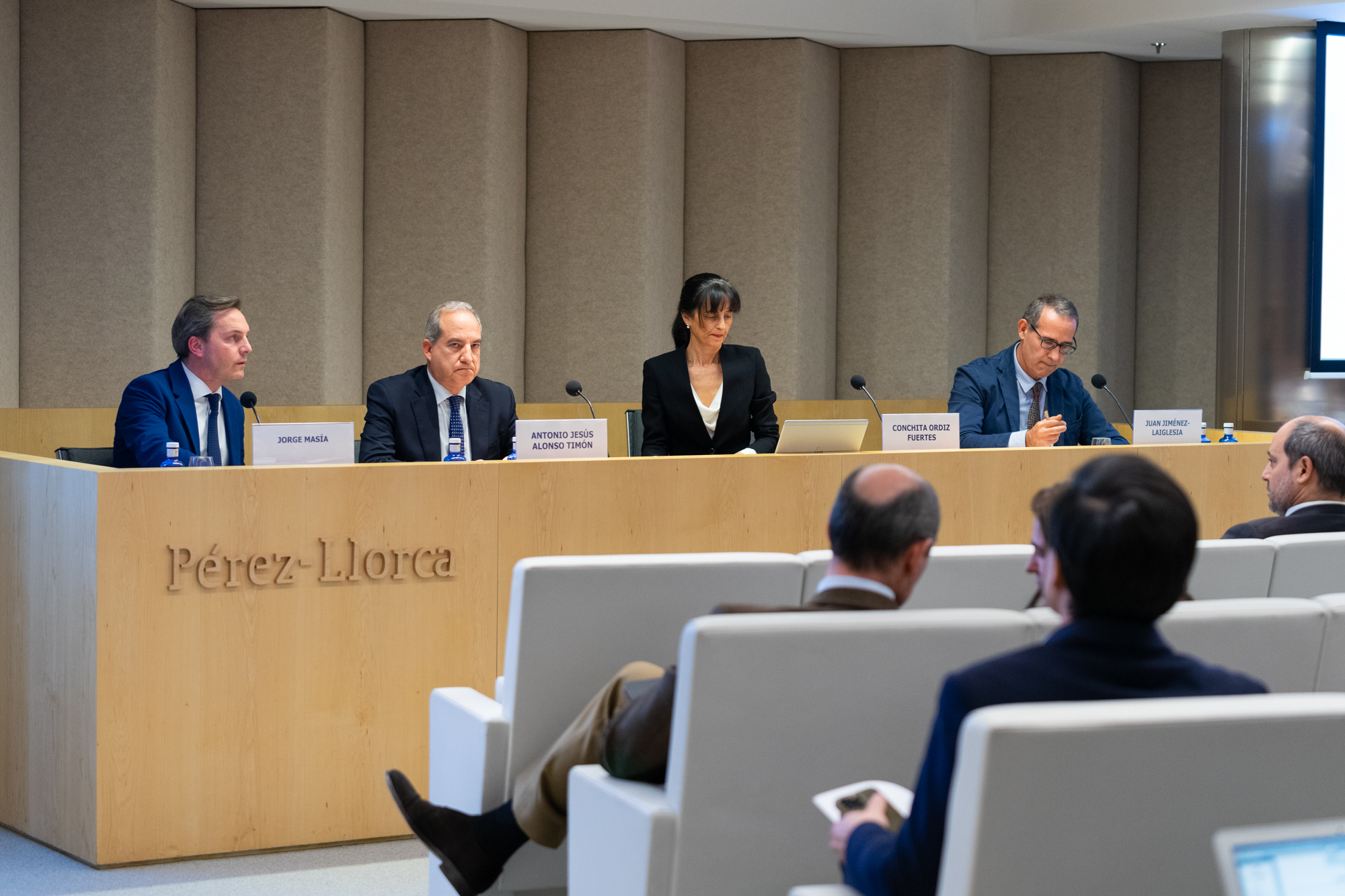At the event, the speakers discussed the latest developments in procurement prohibition from Law 9/2017, of 8 November, on Public Sector Contracts (the “LCSP”), as well as the most significant aspects of its application and interpretation.
The seminar, moderated by Jorge Masía, Competition partner at Pérez-Llorca, was attended by Antonio Jesús Alonso Timón, professor of Administrative Law and director of the Centre for Innovation in Law at Universidad Pontificia Comillas (CID-ICADE), Conchita Ordiz Fuertes, President of the Central Administrative Court of Contractual Appeals, and Juan Jiménez-Laiglesia, partner in charge of Pérez-Llorca’s Competition Law practice area.
Antonio Jesús Alonso Timón explained that the efforts made by the European Union to regulate public procurement and to prevent collusive competition practices largely aim to achieve transparency and efficiency in public procurement, which accounts for 20% of the EU’s GDP. In this regard, Alonso Timón pointed out that the LCSP is committed to sharing the pie between different organisations, thus favouring their entry into the markets and also boosting the role of small and medium-sized enterprises. As an example, the professor mentioned the relaxation of the classification requirements for public procurement, which is only compulsory for works contracts exceeding €500,000.
With regard to the distortion of competition, Conchita Ordiz Fuertes stressed that the LCSP is not sufficient if it is analysed only from the perspective of Article 71.1A. Rather, she clarified that it should be analysed from the perspective of Article 150, which, after its amendment by Law 31/2022 of 23 December, on the General State Budget for 2023, developed the regulatory procedure to make the discovery of evidence of collusion within a company a ground for disqualification.
Continuing on from this, Juan Jiménez-Laiglesia questioned whether articles 71 and 72 of the LCSP allow a clear conclusion to be drawn that the Spanish National Commission on Markets and Competition (CNMC) is legally empowered to enforce procurement prohibition. Jiménez-Laiglesia went on to clarify that when we refer to the application of structural or conduct conditions, we tend to associate them with business concentrations, not with collusive conduct.
Given this ambiguous regulatory context, Jiménez-Laiglesia considered the possibility of the Spanish legislator amending Law 15/2007, of 3 July, on the Defence of Competition. In any case, the Pérez-Llorca partner firm advocated waiting for the first practical resolution of the regulation in order to measure its legal certainty.
Before the event was brought to a close, a discussion took place in which attendees asked questions about the topics covered by the speakers, such as, for example, the scope of this prohibition.
